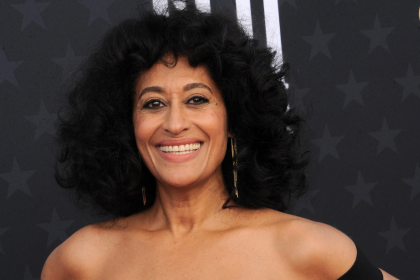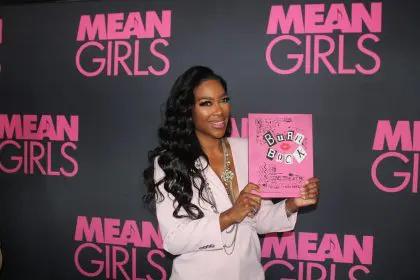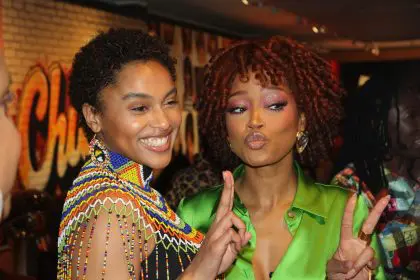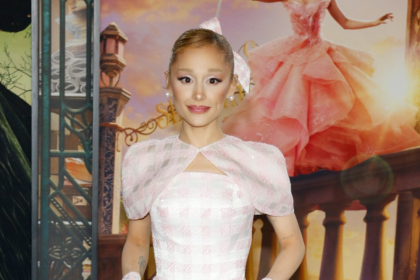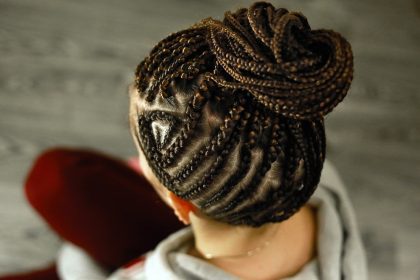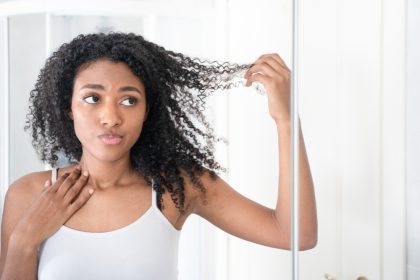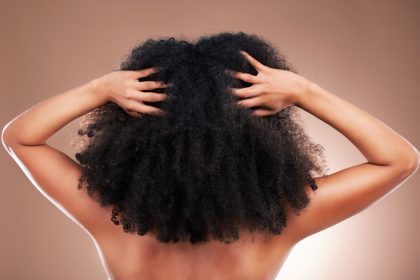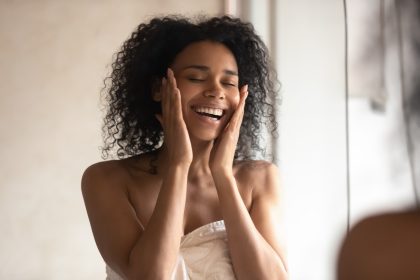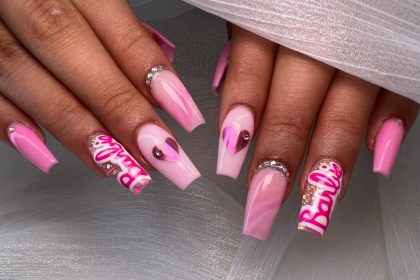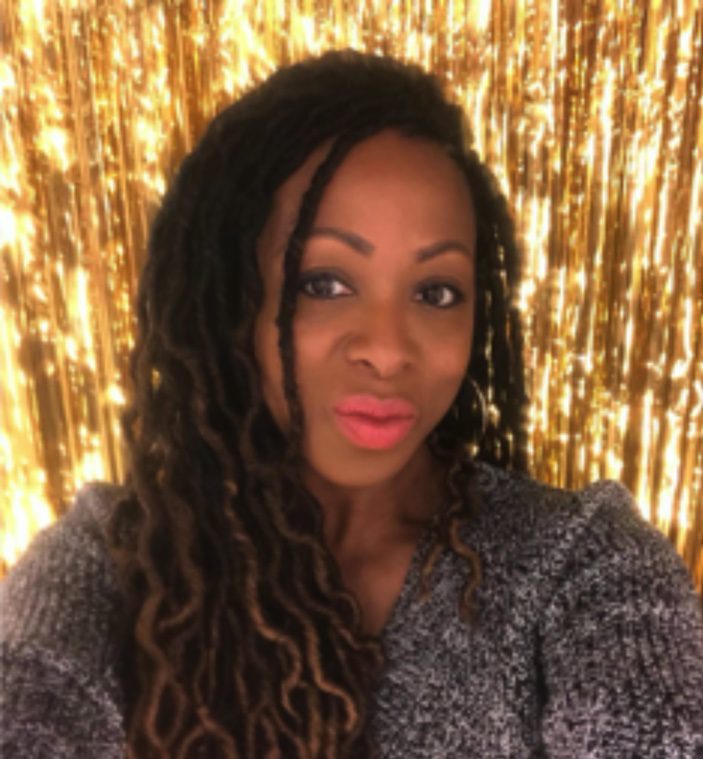 Rolling out, in partnership with Dove and JOY Collective, celebrates the second annual National Crown Day by sitting down with black queen Nicole Thompson, Esq. and talking about crowns and Black hair journeys. Thompson is a civil rights attorney turned nonprofit advocate serving as the Executive Director and General Counsel of The Empowered Readers Literacy Project, a nonprofit organization based in Atlanta. Attorney Thompson, who earned her BA and doctorate from Duke University, lives in Atlanta with her husband and their two daughters, Selah and Syrai. Selah, her eldest, is a published author, having written the Penelope the Pirate Princess book series.
Rolling out, in partnership with Dove and JOY Collective, celebrates the second annual National Crown Day by sitting down with black queen Nicole Thompson, Esq. and talking about crowns and Black hair journeys. Thompson is a civil rights attorney turned nonprofit advocate serving as the Executive Director and General Counsel of The Empowered Readers Literacy Project, a nonprofit organization based in Atlanta. Attorney Thompson, who earned her BA and doctorate from Duke University, lives in Atlanta with her husband and their two daughters, Selah and Syrai. Selah, her eldest, is a published author, having written the Penelope the Pirate Princess book series.
How do you tackle the question of professionalism and whether natural Black hair is professional?
It has been a journey. I’ve been practicing law for nearly 20 years now and when I came of age as a young professional I really thought I had to conform to the status-quo to open the doors I thought I wanted to go through. But doing so I sometimes felt like I was sacrificing who I was. When I started my own practice I decided I wanted to show up as my true, authentic self. It started to open more doors because it wasn’t about my hair it was about who I showed up as. Now I’m able to develop authentic relationships. Professionalism is really about your confidence and your competence, when you show up prepared and more qualified and work harder than anyone else, you force doors open for you.
What does National Crown Day mean to you?
National Crown Day, for me, is impactful as a form of external validation. When society at large acknowledges who you are it opens awareness not only to us but also to the rest of the world who didn’t recognize what we already knew- that we’re beautiful, capable, and smart. For men and for women. It is a wonderful, long overdue acknowledgement that we are valid and our hair is an extension of who we are and not a definition. Its exciting for me that my daughters get to see that.
As an entrepreneur, lawyer, wife, and mother to two girls, what type of journey are you hoping for your children?
Honestly, the journey that I’m hoping for is that hair is not a part of the equation that defines the direction of their journey. For me I was so wrapped up in what my hair looked like and if it was acceptable by others, I want them to have the confidence to know that they can be who they are authentically. I don’t want them to feel limited by their hair or defined by their hair. I want them to be aware of who they are, feel beautiful, and take the journey that they choose.
What does your crown mean to you?
My crown really is my glory. I feel like myself when I can be who I want to be with my hair, however I want to wear it. When I walk in[to] a room I feel like my hair speaks to who I am, not in a negative way or a way that supersedes me, but as an expression of the state I’m in at that time. It is an important part of my culture and who I am. It’s an expression of me, and I take pride in having the autonomy to decide what that description is going to look like.
Were there times you felt pressured to wear your hair in certain styles and what were those settings?
I got my first relaxer at 9 years old and through college I still thought it was the norm. Summer before my senior year of college at Duke I had the opportunity to do a study abroad at Oxford University, and I thought I cannot go to England for six weeks and not get a touch-up. So I got my hair braided and it was the first time I thought “my hair in this natural style is beautiful.” I was sold. Then I went to law school and started having interviews. Every time, I had to not only take my braids out but get my hair relaxed, no color, and precision cut.
What are your thoughts about Black women and girls wearing protective styles and what do they mean to you?
I had a bit of a learning curve with protective styles. There have been times where I fell victim to [while having braids] not doing anything else to my hair. I’ve recognized that we have these styles so we can enhance our hair. So we can do the things we want to do without being beholden to our hair. It’s a part of who we are as Black women that we can own the right to change our hair. My daughters always say “my hair is magic” because their friends can’t understand how they change styles.
Go to The Official CROWN Act (thecrownact.com) , sign the petition, call your representatives and show your support for the act. Let’s get it passed.

